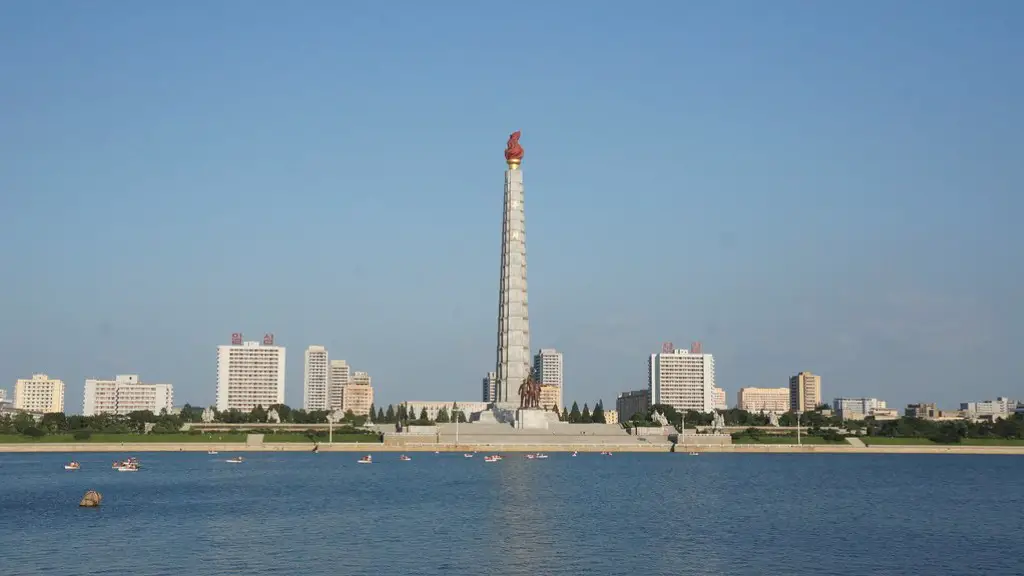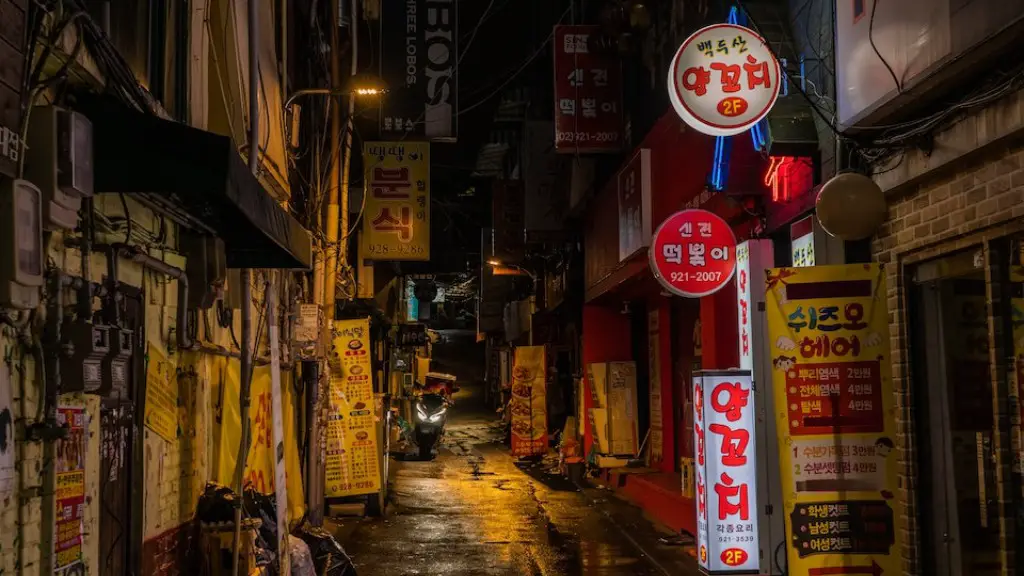Escaping North Korea comes with its own set of challenges, not least of which is risking punishment, even death, for attempting the act. It is for this reason that the country is notoriously one of the hardest places to successfully escape from in the world. Exploring the reasons for why North Korea is so hard to escape from helps us to understand its closed-off system and why it has been so successful at keeping people in within its borders to this day.
The restrictive nature of North Korea’s government has been in place since the creation of the Korean Worker’s Party in 1945 under the rule of Kim Il-sung. Starting in the mid-1970s, the government became increasingly totalitarian and remains so to this day. As the government has grown more oppressive and the people have less and less freedom, so has the difficulty of escaping the country itself. With tight controls on the border, heavy surveillance measures and the widespread monitoring of communication, exporting information and hoping to get it out to the world is a daunting and highly dangerous task.
This issue of escape from North Korea has been an important one for many citizens. It is estimated that since 2000, there have been over 33,000 North Koreans who have managed to escape the country. This number does not include those who have chosen to stay in neighboring countries such as China and Russia, or those who have been deported from other countries once their refugee status has been discovered.
This number may seem large in comparison to other countries, but for North Korea, the number of successful escapes is extremely low in comparison to those attempted. This is largely due to the tight control the government places on would-be escapees. Those wishing to leave the country must first pass various security screenings and gain clearance from the government. This has created a complex system of bribes, cover-ups and payouts which must be passed in order to successfully exit the country.
This system has proven to be a formidable barrier to those wishing to escape, as the cost of attempting to exit is often more than they can manage to pay. Those attempting to leave without government permission risk the possibility of being caught and exiled, or even worse, executed, for their actions. Furthermore, even those who do successfully manage to cross the border into China often times find themselves in a perilous situation, as many are rounded up by government officials and sent back to North Korea, as China has a policy of repatriating North Korean refugees.
The reality of North Korea’s situation is that escape from the country is not easy, and brings with it an extreme risk of punishment and death. It is this reality that makes North Korea one of the most difficult places in the world to escape from successfully.
The Blurring of Refugess
In comparison with other countries, North Korea can be looked at as having very vague distinctions between official refugees and defectors. Both of these terms are often used interchangeably and do not have clear dividing characteristics, thus blurring the line between them and making it difficult to track their movements. There have been cases where people have attempted to escape and been caught, only to be repatriated and called a defector, rather than a refugee.
The United Nations and other international organizations have attempted to address this issue and create a formal definition and classification system for North Korean refugees. This would allow for more accurate and comprehensive resettlement programs to be created and implemented to help facilitate their escape, but these efforts have been met with resistance from both the North Korean and Chinese Governments.
The situation is further complicated by the fact that many North Korean refugees are unable to prove to other countries that they are “legal” refugees and not simply defectors or other “undesirable” elements. This makes it difficult for cities and countries to accept refugees as they cannot confirm their legal status. As a result, often times refugees are detained and denied entry, or worse, forced to return to North Korea.
The complexities of this issue have become increasingly evident in recent years, and have served to further compound the difficulty in escaping from North Korea. The lack of legal recognition for refugees makes it difficult for them to find safe harbor in other countries and the blurring of distinctions between defectors and refugees further complicates the matter.
Economic Impacts
Another factor that has contributed to making North Korea a difficult place to escape from is its closed-off economy. North Korea’s economy is heavily reliant upon the export of goods and services to other countries, with a particular emphasis on those such as China and Russia. This reliance on export has tied the country’s economic future to those of its trading partners, and has created a tightly knit relationship between the two countries.
This relationship has made it very difficult for refugees to access the economic resources they would need to facilitate their escape. Not only are refugees unable to access the legal resources they need to gain entrance to other countries, but they must also use whatever financial resources they have available to pay for travel, food and housing as they make their way to a safe haven.
Furthermore, with the increasing prevalence of sanctions against North Korea, the country’s economy has been further impacted, making it more difficult for citizens to access the resources they need to facilitate their escape. This includes a lack of access to basic food and medical supplies, as well as a decrease in the amount of money available for individuals to use to purchase goods and services.
This situation has been compounded by the fact that the North Korean government has implemented restrictions on the amount of money and goods that citizens can export from the country. This has created an almost impenetrable barrier for those looking to escape, as they not only need to pass the various security screenings and government clearances, but they must also find a way to access the economic resources they need to survive while they are in the process of escaping.
Cultural Pressures
The final factor contributing to the difficulty of escaping North Korea is the cultural pressures associated with the act. As North Korea is a highly traditional society, there is a heavy stigma attached to individuals who are attempting to leave the country. Those caught attempting to leave are seen as betraying the ideals of the nation and its high esteem of loyalty and patriotism.
This stigma is further compounded by the fact that North Korea is a highly insular nation, and news of escape attempts often ends up being public knowledge. This leads to individuals coming under immense scrutiny and pressure from their families, friends and communities for attempting the act. Those who are caught attempting to escape are often subjected to public shaming and humiliation, and can even be cast out of their families and communities for taking such a drastic step.
This fear of judgement and public shaming has served as an effective deterrent for many North Koreans from attempting to escape, and has made the process of escaping significantly more difficult. It has also made it much more difficult for those who have successfully escaped to acclimate to the culture of their new surroundings, as the stigma of being a refugee often follows them long after they have left.
International Aid
In order to address the issue of the difficulty in escaping North Korea, the international community has taken steps to provide aid to those attempting to make the journey. This includes special grants and programs dedicated to offering assistance to those in need. By providing aid to those attempting to escape, it is hoped that they will be able to make the journey safely, bypassing some of the many challenges they face along the way.
Furthermore, international organizations such as the United Nations have taken it upon themselves to lobby the governments of adjoining countries to ease their restrictions on refugee entrance. This includes the establishment of formal refugee programs and the implementation of stronger security protocols to ensure that refugees are able to successfully migrate without being enacted upon.
The international community has also been providing food, medical and financial aid to those in need and has taken it upon themselves to provide legal representation to those who have been detained by their respective countries. By doing so, it is hoped that these individuals will be able to be reunited with their families as soon as possible.
These efforts have been effective in promoting more successful escapes from North Korea, as more and more individuals are now being provided with the assistance they need to make their journey. By doing so, the international community is helping to reduce the risk of North Korea becoming an impenetrable fortress by providing resources and support for those looking to escape.
U.S. Government Intervention
The U.S. government has made various attempts to engage in diplomacy with North Korea in an effort to come to an understanding on issues such as nuclear disarmament and human rights abuses. One of the main components of this strategy is the establishment of a diplomatic mission on the ground in Pyongyang. This mission is aimed at engaging North Korean officials and citizens in an effort to foster dialogue and understanding, and to help promote better relations between the two countries.
Aside from diplomatic efforts, the U.S. government has also taken it upon itself to provide assistance to those attempting to escape North Korea. This assistance includes both financial aid packages and the establishment of safe havens for refugees across the world. This assistance has been effective in helping to facilitate the successful escapes of thousands of North Koreans.
However, the U.S. government has also been accused of fueling tensions with North Korea, and of exacerbating the humanitarian crisis in the country. These criticisms come largely from the international community, who believe that the U.S.’s interference in the internal affairs of North Korea is not helping to promote dialogue or understanding, but is instead contributing to the escalating threats posed by the North Korean government.
Conclusion
In conclusion, North Korea remains one of the most difficult places in the world to escape from. This is due to a variety of factors, including the oppressive nature of the government, the tight control it has over the border, its heavily relied upon economic ties and the cultural pressures associated with defecting. In order to address this issue, international organizations and the U.S. government have taken steps to provide assistance and aid to those attempting to make the journey.





